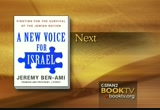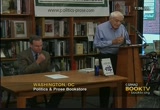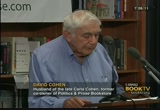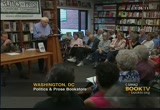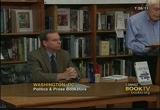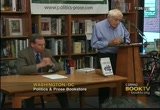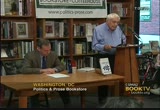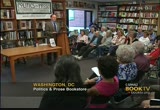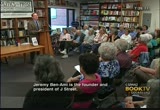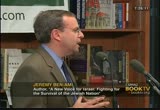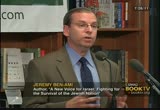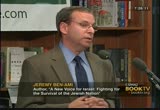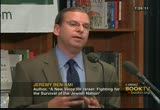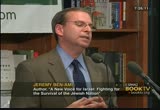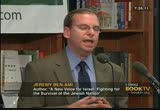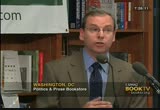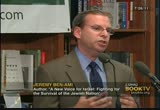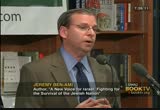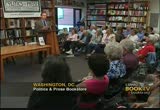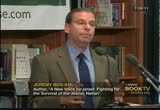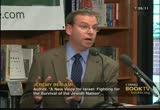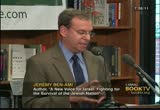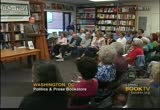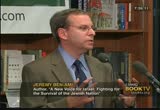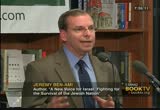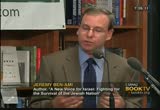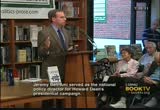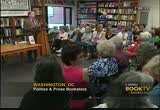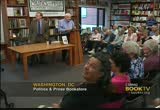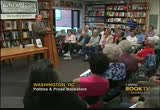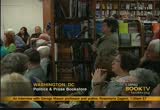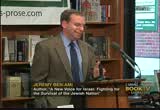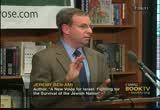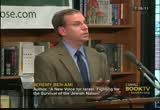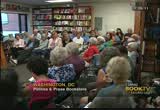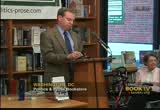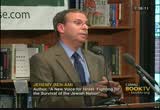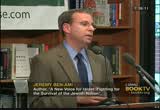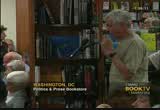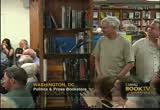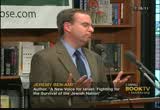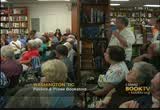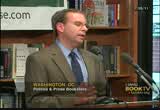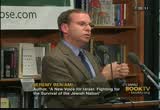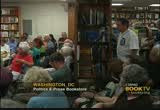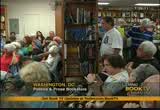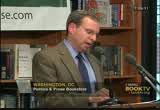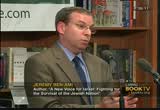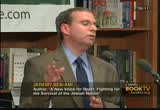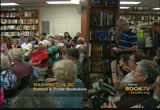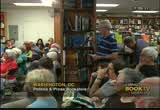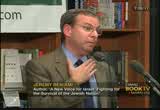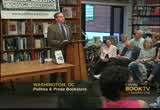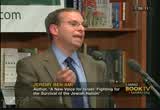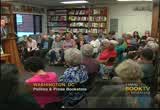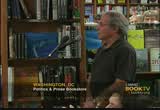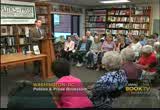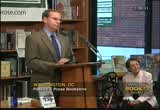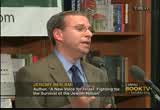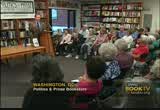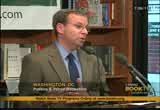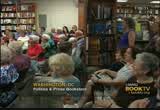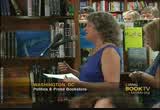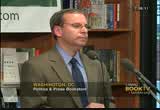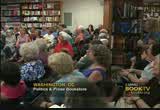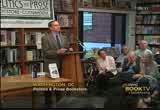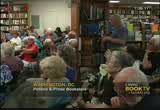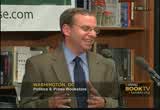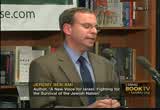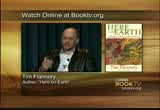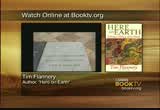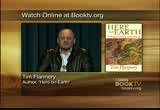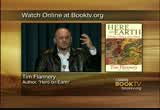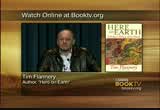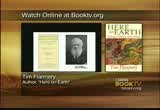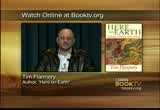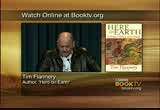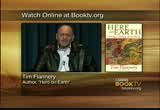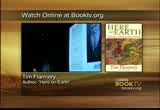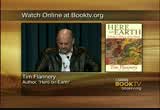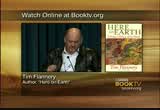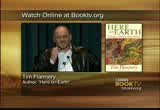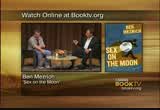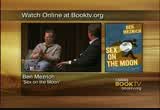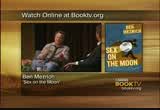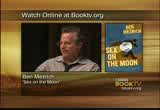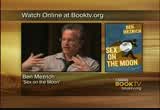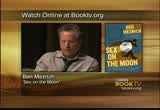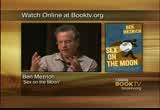tv Book TV CSPAN October 16, 2011 4:30pm-6:00pm EDT
4:30 pm
so "the reader" can relate because it is not about how many mistakes we made or if we had never fallen because you simply cannot pretend to be perfect. it is too exhausting. we're human. but it is about if you get back up again to own up to your mistakes in if you are willing to forge ahead in spite of the opposition. that is why i chose to address many of those things and talk about where i came from and the hardships i endured so people can be inspired to get involved.
4:31 pm
>> good evening everyone thank you for being here to the standing room only. ibm david cohen and the husband of the owner of blessed memory who is one of the founders and starter's of politics and prose. we're here to welcome the celebration of a new voice -- "a new voice for israel" fighting for the survival of the jewish nation" by jeremy ben-ami and i am particularly pleased to be here in the interest of full disclosure i am an active supporter of jay street said jeremy helped to found. with him and many others and loads of rabbis and i
4:32 pm
welcome new to politics and prose. and in this family. his personal and reflective book represents an important contribution to the ongoing matter that engages us as americans on matters affecting the middle east. including israel and palestine in for many of us who are supporters of israel as a homeland for jewish people and a democratic state in as a pluralist state come as a community institution, politics and prose has a robust three marketplace of ideas and a new voice for israel exemplifies what it is all about and the legacy that was began with the staff of politics and prose to engage
4:33 pm
customers, this legacy continues under then new ownership. i just want to take a minute on a brief history of israel and palestine in this war. under carla, the free marketplace of ideas was exposed in a public forum forum, the wrongheadedness of the book the israel lobby and the u.s. foreign policy. to have a place to discuss their ideas negative and take of what they were about.
4:34 pm
those who stayed prospective ban those scholarly writers and jennifer third griffin and robin wright among every others. i am particularly proud because politics and prose has hosted writers to our moral leaders, more than once david grossman and as greece the portals. jeremy ben-ami has accomplished is a powerful case for a new definition of advocacy. i'm going to quote three sentences. victory means ensuring the long-term security and survival of israel has the democratic, the jewish people. victory means defining
4:35 pm
borders for israel to given during legitimacy in the community of nations to see this all of the root of the values and ethics same principles of the jewish people. this is a personal book of jeremy's family involved as pioneers and i would say risk takers to create israel. it is also a story of his personal journey. not as a young man alienated from politics a jewish activities but still it a journey. he came to the passion and of his american experience as an activist and one who came to resolve questions about his background to mind with the ever been assassination. a lot of opinion data is based on what people think
4:36 pm
that the public agenda is defined by a group that reflects aa% of american jews. the political playing field should not be left to the small minority as loud as it may be. other place since need to be heard with real security concerns and over those to legitimize israel. also beyond the yes or no proposition we should have a serious relationship with israel and that means there is a time to hunt and russell. and in the relationship should reflector on ethical and moral values to show there is also time for support. it surely should embrace critical thinking.
4:37 pm
with difficult issues even if they lead to an initial argument. juries sort has shown a relationship to israelis to run the gamut from former security officials if you're on capitol hill today you may run into the meeting with members of congress with orthodox and pluralist thinkers who represent as the orthodox jew of passion for democracy and pluralism. a continuing journey with much work to do let us welcome jeremy ben-ami to politics and prose. [applause] >> thank you so much kumbaya
4:38 pm
david. it is easy to tell you have spent a lot of time around fine if thinkers and writers that was a wonderful introduction and i am deeply honored to be here. this is my neighborhood bookstore, my neighborhood in memory of carla and the legacy you have built is truly a testament to the marketplace of ideas we think is not only the best for the political world in washington d.c. but also the jewish people. thank you very much for having me here this evening and for the wonderful introduction. there are a few people here who read the book and the early stages you participated been the number of staff of j street instead of running through everybody by name a winter acknowledge i have friends in the room
4:39 pm
but do acknowledge i brought a fan club tuesday the audience of your thinking of asking me a tough question or saying something not so nice my wife and my young children are here as well i am very proud of them. has a say in the introduction, of the work that i do that we do it jay street is as much for future generations as much as our own security in hopes and dreams of today. i am very pleased they are here with me today. the president and founder of jay street which is pro-israel, pro peace lobby an organization that started three years ago to fill a bathtub -- vacuum in the scene and over the course of those three years i have amassed a lot why did you
4:40 pm
start this organization and what motivated you personally? would be trying to solve and what is the solution your offering? in the 21st century you would tweet the answers 140 characters or less by an old-fashioned and i decided to write a book. what i would like to do in a few minutes tonight is to lay out some of the questions to put out the story of jay street in the movement we try to build into a personal and historical context. some new thinking and challenging thinking on three central challenges for those who care about israel
4:41 pm
and the jewish community and namely how can we ensure the survival along the lines? jewish homes, the democratic state? how we ensure that for the long run? how can we change it we consider the unhealthy dynamic in america 10 politics? in how to read deal with the american jewish committee that has not been willing to have been set open-minded discourse and israel as the complexity of the topic? i tried to address all three of those to lay out ideas. but the most important is the help the book delivers a call to action because it is not enough to answer the questions we have to come together as a community to affect the future not only
4:42 pm
for the benefit of ourselves but future generations. then we can open it up for a lively conversation. but on the personal side of this, as i lay out, with interests in israel and my commitment to it, a very honest that my family is deeply rooted in the land of israel. my great grandparents were in the very first year moving from russia in at 18822 help found a small settlement at the time that was a good word which today is a thriving industrial city of 300,000 people and is a suburb of another city that my grandparents were founders of which is tel
4:43 pm
aviv. my grandparents were among the 60 families 102 years ago who stood on the seashore of tel aviv and pulled the sea shells out of that had to choose their lots of the first guard and lots. i was so proud to take my kids back to that very spot to show it where it it was their grandparents were a part of the history to take into the monument in the center to show them their names. my father was born in tel aviv one of the first boy as born and grew up a good socialist the zionist talking about the creation of a more perfect jewish community meeting to a
4:44 pm
jewish state in the land of israel. i talk about in the book of his personal conversion of a young man in the wake of the riots rich many were affected and rights of center political thinking he shifted radically from the youth movement of cremate -- upbringing of the hard right of the political zionism. known as to some as a freedom fighting movement and was one of the people who bought and armed that was ultimately blown up one of the generals i was escorting around many of you know, the name.
4:45 pm
he read the first 70 pages of the boat to nights ago. he told me i did not realize we had this connection but i was in on the beach shooting at your father 63 years ago this past week. [laughter] some of it is history some of it is living memory and this goes by way to say the first part of the book is a personal story to tell how it is i came to be rooted in a love of israel and a concern and how i came to my own set of political views much as my father shifted from the left to the right and i shifted away from the view that my father held of those issues and post but rabin assassination i spent time to explore these personally i learned selling
4:46 pm
bridge and studied the whole time to open a business and contemplated after working at the white house and was nearly killed in a suicide bombing in jerusalem. all of these events together helped to shape a rethinking of my personal philosophy when it comes to israel to recognize these security from strength and light to loan. it has to come through a political process as well as strength and security. and israel itself will be much more secure when it has a qualitative military edge but none of those alone in my view would be sufficient. beyond the personal story, i take the book into the
4:47 pm
issues facing us today. as we create a street there is three sentral challenges to put into conference the first relates to the future of the state of israel itself of the president of the united states, barack obama said the path that israel is on today is unsustainable they cannot be the homeland of the jewish people and a democracy if it holds onto the land between the jordan and mediterranean and estimate day choice with the democratic character the jewish nature if there is a recognition that the sons and daughters of the hardline politicians of israel have come to realize the dam of the world and
4:48 pm
those to spoke movingly and the leader of the opposition, then need for a two-state solution to the jewish palestinian conflict, the need for two homelands for two people living side-by-side, that is not a dream or an aspiration it is a necessity for those of us who care about the future of the state of israel. they did not give up believe it will either sacrifice the democratic character which we are beginning to see little by little but the laws that are bought -- passing but it will become a wednesday nation that the jews and palestinians live together as equal citizens and
4:49 pm
overtime the jews as a minority will be part of their own destiny. and homeland adobe the entirety of the land of israel or a separate state with a border and defense and a wall and security arrangements to militarization to live her next door. that is the first challenge the book lays out for those of you who are involved. we have a strong position and now the second piece weedy the united states. i often liken the conflict between the israelis and palestinians between a bad marriage headed for a divorce for you cannot expect the two sides to be put at the table with the door close to be left in there to ask to be solving this on their own.
4:50 pm
they have been trying it for 20 years. the two sides left to their own devices will not reach a resolution and they need outside help, an arbitrator, the united states to play the role of the outside broker and facilitator of the deal. that will never happen if the political face is not allowed for the nine states to play the role. that is the second challenge of had to be create the political space to allow politicians and policy makers to pursue a course to the two the two state solution in the best interest of those who care about the state of israel? for too long the politicians and policy makers have only heard one pointed as we say in the book it represents the loudest 8% of our community. not meeting to say only 8%
4:51 pm
hold right of center more hawkish views but those who engage in the israel advocacy as the centerpiece of their political life of our political and advocacy activity are well to the right of the mainstream of the jewish community we see this in poll after poll after poll and lay out the data we issued a new poll and american jews support the president was a two-state solution and opposed to the settlement to help to resolve the conflict. you would not believe and would not think our true. and the voices that purport to speak so now to rewrite the rules of american politics when it comes to israel to give the rest of us of voice if the political
4:52 pm
damage. but the third challenge is the american jewish community itself. not just in the political sphere that this happens they lock up the debate in the american and jewish community as well but no one in this room would disagree with the notion to put it to choose a room with three opinions if you would get hundreds of opinions meant to make a debate and discussion and disagreement for the basis of our culture and tradition and learning, from? they are so filled with ideas and opinions and energy should have only one opinion? that is such a divisive question to grapple with in the first place? no. we're told that to
4:53 pm
disagree with the policy of the government of the state of israel is somehow the idea and that needs to change. it will turn up a whole new generation of people who cannot think that way. and i say in the book there are a number of generational explanations for why we act the way we do as a community and those over time who are older than me remember world war ii, remember personally or parents experience in the holocaust and remember the creation of the state of israel and the wars that were fought. those younger than we have no personal regulate -- recollection and for them the reality of today that no longer as the david but the goliath and a vast generational difference
4:54 pm
in where it doesn't come to embrace that to understand it and provide a broader conversation that at times may be difficult but in the end would be very beneficial to the community. with its own institutional semis and i will lay that out as a third challenge in the book. but in the and i did not write this book simply to lay out challenges and outline problems but to sound the alarm and to inspire action.
4:57 pm
very good at giving speeches and a very good at playing down division and not quite so good to step forward and take action we need a president of the united states and the congress to step forward to lay out the parameters to say now the use of the parameters of. it is a time for action and working together to avert of future we don't want to
4:58 pm
regret to milieus due to introduce our regional director with the either one would be happy to talk about our campaign right now. called about the two state summer campaign to let our officials know that we do support the president's vision for the two state this is the time to step forward and mobilize that is my hope for the book that it is a catalog of bylsma of what we face but the decision of hope and a call to action as remove or in the effort to save the future of the state of israel. thank you very much for coming. i look forward to your questions. [applause] >> thank you so much we will open it up to questions but
4:59 pm
we will have made very full and comprehensive speech but i want to take a minute to think our camera people from c-span who had so much do the symbolizing this course. and thank you for being here. if you are comfortable feel free to say your name. >> i joined americans for peace and jay street as soon as i heard about it i think it is a wonderful idea. do you think barack obama should publish a little harder to not back down and settle so quickly? he has that at his disposal says george h. to be bush did to with all but a or to pulp -- chris of all into the trenches to make them more recalcitrant than ever? >> i was separate out the
5:00 pm
two parts of the question that the president could put a charter and work with the quartet instead of stopping to do is stop them that was tried to line up with the speech and to make it clear demand to both parties they need to come to the table according to the following parameters but i don't think it works to threaten to cut off aid. i don't think those negative pressures whether boy caught sort investments are sanctions, we at jay street and not feel those are tools to make any sense. they undercut the feeling of security israelis need to make the deal. . .
5:01 pm
>> be a resident there and be israeli. it is not for america to say what they should or should not do. how would you answer that? >> okay. so on the u.n., what we're all about is, actually, resolving the conflict. actually having two states with a border. israelis on one side, palestinians on the other. we will support anything that we think moves in the right direction. the passage of the u.n. resolution that simply says there is a state of palestine, in our view, doesn't necessarily move the ball in the right
5:02 pm
direction. in fact, it may move the ball in the wrong direction. it may result in other unilateral actions by israel that move us in the wrong direction, it may lead to violence, it may lead to expectations being raised on the west bank and then dashed by the failure for anything different the next day to happen. we met with the prime minister of the palestinian authority on our most recent trip to the palestinian authority, and we sat with him in ramallah, and we asked him about the u.n. action. he's been publicly opposed to this because he said nothing will change on the ground the next day. so j street's position right now is there's a window. we've got about six to eight weeks before the u.n. meets and votes. the quartet and the americans have been meeting with israelis and palestinians trying to find a formula in order to get going on a diplomatic agreement, not just talks.
5:03 pm
we've had enough of process, we need peace. so we're talking about a serious, meaningful initiative to happen in the next six to eight weeks that would defer a u.n. vote to such time as it ratifies an actual agreement between the parties. so that's our position on the u.n., that it doesn't in and of itself resolve anything, it doesn't move the ball forward to have a resolution passed. >> can i do a follow up? is. >> can i answer your second question, first? then we'll leave it up to the moderator. the second question, what right do americans have to speak out on this issue? my answer is, obviously, the decisions at the end of the rest with the people who live there. it's a chem accuracy. the us rail he -- israeli people live there, they're going to have to make these decisions on their own. they are what i call preferred shareholders. but i think we have a stake too. we have been partners in building that country and securing it and building the
5:04 pm
alliance with the united states, sending our kids this on birthright trips. being add r asked to lobby. we're common shareholders, but we have the right and a voice in this discussion even as the decisions are made over there. and this is an american debate. so if the right of center in our community has the right to lobby in washington, d.c. to make its views heard in the american political process and their pressure is going to skew american politics and policy, we have p every right as americans to speak out here about american policy and to say what we think is the right direction for the united states. so we are american citizens participating this american debate -- in the american debate about what american policy should be. >> i think we're taking them from the microphone. my apologies, but there's a line. it's for the tv. >> i really appreciate you putting this position forward.
5:05 pm
question is a couple of things, issues. what is the resistance? i mean, i keep hearing it's the ha sidic element that has too much power and hangs on and clings. that's one thing. what kind of reaction are you getting from pal palestinians regarding this, and the right of palestinians to return. in other words f the you give a state, does that mean it cancels out palestinians returning? and then finally, your choice. finally, um, economic development is going to be absolutely crucial to any solution to this thing regardless of whether or not the two states. is there any kind of thinking to set up some kind of a joint economic development plan? i mean, i know that's jumping way ahead. you don't even have the state yet. but i think some hope has to be offered that it's not just two,
5:06 pm
um, unequal states that will never be able to live side by side. >> i think i remember three of the four. >> okay. >> the, the source of the resistance within the american jewish community, i think, is very understandable. which is, we're a people that suffered a great deal. we have a legacy of general rawtion after generation having enemies. we've been wiped out in various different places. and i think it's rooted in our communal psyche to have a very heightened sense of security and fear. and i think that emotional side of us controls the rational side at times. and i think that that is totally understandable, and i think we need to address that to make this case that you're going to be more secure in reaching this agreement. you're going to be more secure if you're accepted into the international community of nations. you're going to be less secure if you're a pariah state. you're going to be less secure
5:07 pm
if there's a majority of palestinians living in your geographic area. so i think it's because of the sense of fear that is real and rooted in the history. the palestinian reaction to this has been understandably positive from those who are reasonable, moderate palestinians who are interested in a two-state solution. and there are many. and one of the miscob senses of this -- misconceptions in this country is there's no partner, there's nobody to talk to. there is a whole segment, large segment of palestinian society that is the mirror image of a large segment of israeli society and has suffered a great deal. and they, too, have emotions and fears and insecurities. but they understand at the end of the day what's best for them and their family and their kids is to reach a peaceful resolution. so there's been tremendous reaction from the moderate wing of the palestinian community. and, yes, there has to be economic development. one of the miracles that's taken place under salam fayyad has
5:08 pm
been economic growth. i've never seen it as vibrant and developing and cranes and economic activity, and it's one of the fundamental underpinnings of creating a state. >> [inaudible] >> right of return. well, we are opposed to the right of return because that would, obviously, decimate the concept of the state of the jewish people. there should be one state for the palestinian people and one state for the jewish people. and one of the, you know, bottom lines of reaching an end of this conflict is an acknowledgment that all claims have been settled, there'll be compensation for those who have lost their property and homes. but if they're going to be returning to a home, it's a home in their homeland which is the state of pal stipe living next door to the state of israel. >> um, have your getting politics and activism, any other progressive organization that you know of thought about the
5:09 pm
primary and general election in congressional races in the house and the senate? um, have you thought about which candidates to back, which not to? um, the reason i ask is i'm convinced that you won't get anything from president obama for the next, certainly not until, um, the presidential election. netanyahu is too smart for obama. he's been handgun -- he's been willing to humiliate obama as in the extension of the settlement, and obama's up for re-election. um, so -- >> i get the drift of the question. >> thank you. >> the whole purpose of j street is to engage politically.
5:10 pm
what was lacking in this political discussion prior to creation of j street was a political action committee, a lobby, that would actually raise money and endorse, raise money for and enforce candidates who support sensible pro-israel, pro-peace positions. so we created j street pac. and in the last two cycles we've made it into the largest pro-israel pac in the country. and on or web site you can find out more about our pac and find out more about the candidates we've enforced in past cycles, we are going to endorse again in the 2012 cycles. we endorsed, i think, 61 candidates for the house and senate. we raised about a third of all the money that came through -- >> i contributed. >> thank you. so you know. [laughter] that's what we do. and that is how we hope to shift the dynamics over time. this is a steep mountain, and it is not an easy lift. and so we are making tremendous progress. we have 180,000 members of j street now.
5:11 pm
we, as i said, it's the largest pac. we have a staff of 50 people, and it is going to be through the political change that we create the ability for a president like barack obama to stand strong and do the right thing. >> okay, thank you. you'll get down to the district level. thank you. >> absolutely. >> talking about the rare consensus in congress and, indeed, within the government about the issue of the two-state plan, and it would seem like a mystery how come with this, with this consensus that there is no movement? and i think it would be a mystery if we don't actually expose still the elephant in the room here or many times what's going on in the politics here when it's not mentioned, almost not mentioned at all. and i'm talking about the influence, the blocking influence of the jewish lobby and its extension in the power of the us railly embassy --
5:12 pm
israeli embassy has over the conference of the jewish president, etc. and it's a reality. and it exerts a lot of power over the decision making within the jewish community top down. and, i don't know, it wasn't mentioned. i know that it's a factor. it should be talked about and they really put a lot of power against any type of change. and if you -- it's a reality that any leader move away from the direction that the embassy decides to, that that's the right line, you're sanctioned. >> i think you're raising -- >> the question is -- >> okay. go ahead. >> what kind of advocacy and you and advocacy group, how do you approach that sensitive issue? it's a real issue. main issue, i would say.
5:13 pm
>> it's an elephant and it's a donkey. [laughter] it's bipartisan. i address it very directly in the book. it's not a mystery, it's not shrouded in any secrecy. the fact that american politicians depend for their re-election on money b is a central reality of american politics today. it's, i think all of us would agree that it is what warps us on health care policy. it's what warps us on energy policy. the role of money in politics warps the policy-making process in this country and leads us to bad results. on this issue it is the fear over what jewish voters and judo nors think that has american politicians in a bind. because behind closed doors and when they're talking off the record, they'll say one thing about what they actually believe and what they know, and when they have to go out front and talk to a public audience,
5:14 pm
they'll say something else. and so what we have to do is change that dynamic. it goes back to the prior question. until we, who are the moderate, rational people in the community, can raise enough money and show that we have political power, we're not going to change that dynamic. it's simple, the rule book of more american policy. this is the way the game is played. and until the rules are changed by people like david cohen, we're going to have to play by those rules, and we have to show how powerful we are, how many of us there are. we're going to have to get more organized and speak more -- >> can you just address -- >> let me take -- [inaudible conversations] there's a long line. thank you. >> good evening. first of all, i'd just like to say it's the first time i've heard of your work and the group, and i appreciate what you're doing. >> thank you. >> i do have a few points that you could consider issues or concerns, i'll leave them to you whether or not you wish to address them.
5:15 pm
first of all, i heard no mention of jerusalem in your discussion. as you, i'm sure, know during the '40s and '50s the jews were not each allowed there. -- even allowed there. jewish grave sites were desecrated throughout the area. i don't believe that feeling has changed. and even to a two-state system, to which i'm not opposed, i wonder how if you're gauging the effect of that on the surrounding countries. the second is your insistence on a political arena. i wonder what that arena is. i certainly don't see that in the united nations, so i just wonder what you mean by that. the third point that concerned me was you're speaking as if you mentioned, i thought it was a good analogy that it was the end of a bad marriage, the two partners alone aren't able to kind of see themselves through the settlement, let us say. um, i think if you have the oslo accords that are still standing,
5:16 pm
just not been acted on, you have many other accords innumerable times, you have orr countries besides those that have step inside the mediate on behalf or in good faith, i would say. it's not as if this hadn't been asked for, nor done before. the problem is they never moved forward. in fact, many would argue the palestinian uprising was staged in manycepses because of the fact that a two-state agreement was very close to settlement. so i just wonder, kind of, how you see your way through those particular issues. and, um, i'd just like to say in closing the only thing that's standing, the only thing that's worked, the only treaty, the only agreement through all of this has been the camp david accords which has kept israel and egypt more or less on their own side of the fence. that's the only -- and that didn't involve money. >> thank you, sir. >> thank you.
5:17 pm
>> jerusalem. i couldn't feel more attached to any city in the world. i lived there for three years, my great grandparents live there, my participants are buried on the mount of olives which is one of the territories on the other side of the line, so i am deeply concerned about the issues you're raising. the solution for jerusalem has to be, though, that it is the capital of both peoples. the eastern parts of the city today, 28-hour villages that were annexed in 1968. those villages remain in 2011 arab villages. we went with my family to look at the overlook from the promenade there, and i asked my kids, can you tell, you know, which part is arab, which part is jewish? you can still tell. t ease is si enough to say -- it's easy enough to say this part wrongs to the -- belongs to the jews, and this is the capital of them, and this is the capital of us. the holy area which is one
5:18 pm
square kilometer, and that's the toughest nut to crack, olmert put forward a proposal for internationalization of that area. this was the idea back before the first u.n. resolution. i believe it's the only way to go with the holiest areas where an international committee including israelis and palestinians and others oversees and administers so that all religions have free and equal access to their holy sites. so i think there is a resolution. it requires sharing a state that i love and that i think is the holiest place on earth. but so do other people. where is the political arena? i'm talking about the political arena of the united states, and i'm talking about that being opened up so the discussion can take place freely, so that america's national interests can be pursued, so that all sides of an argument can be heard and so that q r -- we don't have resolutions passing that don't advance america's interests and passing by 400-5 because 300
5:19 pm
members of the congress feel intimidated into voting for something they don't really agree with. that doesn't serve our interests. you're right, the solution is known. i said that in my talk. i could outline it for you in 60 seconds. what's been missing is the political will. and we've never had a constellation where you had a palestinian leader and an israeli leader and an american leader who were all on the same page and ready to take it forward. there's always been a missing piece. so i think the political will has to come from the united states. i think we have to have the ability to help both the palestinians and israelis to move forward where they may be reluctant at times, and we have to work this concert with our allies in the international community as well. >> yesterday i went to hear dell blacksman who, interestingly enough, were introducing their new book. um, and if i could characterize,
5:20 pm
you know, the main theme of the book, they're basically saying that a two-state solution is necessary but is not sufficient. and that what is also required as an accommodation within israel and with israeli-palestinians, one that recognizes the continued jewish character of israel but at the same time finds a means for recognizing the dignity of the palestinians as well. and basically i think what they're saying is that the trend in israel is moving in precisely the opposite direction. the right wing is in avenn dancy, and this is a major issue. and until a resolution can be devised, the two-state solution in and of itself is not going to be sustainable. this is getting much less attention at the international
5:21 pm
level for, i think, fairly clear reasons. but, nevertheless, it strikes me as an important issue, and i guess i'm interested in, one, whether you agree and, two, what does this mean in terms of how we proceed? >> let me tell you, first of all, i 100 percent agree. know the authors well, i appreciate their work. i talk about the internal and the external challenges facing israel as two sides to of the cn that is the future of israel. there is no future for israel as a jewish and a democratic state that is secure and living within recognized boundaries if it doesn't deal with both sides to have coin. one side of the coin is it has to reach peace with all its neighbors, and it needs borders that are accepted by the neighbors and recognized by the whole world. that's one part of the puzzle for the future. but the other part for those of us who care deeply about israel is the internal. it is the domestic health, the
5:22 pm
vibrancy of the democracy, the adherence to jewish values in practice where jews finally have power. do they keep up what they said when they were, when we were a minority and we said, you know, the minority should really be treated well, they should be given equal rights. you shouldn't have systems where you have preferences for those in power. well, we thought that was a good thing when we were in the minority. how about when we're in power? is so i couldn't agree more. there's wonderful new organizations like the new israel fund that focus on the internal strength of israel. i view j street's partnership with the new israel fund as the two sides of that coin. and you need both if we're going to insure there's a country for our kids and grandkids that we're going to be proud of. >> good evening. um, i had the chance to read through your book. i deeply appreciate it. um, i was wondering if you could talk a little bit about teaching a nuanced view on the conflict from day school, from judeo
5:23 pm
schools, jewish day schools. how should teachers, in your opinion, go about teaching a nuanced view while remaining sensitive to the development of their people? >> the good news for all of you is he only bought the book at the beginning of this talk, and he's already finished reading it. [laughter] that's how quick a read it is. since you're going to be one of the teachers at my kids at our religious school, i'd better come up with a good answer for you, right? i think you have to tell the truth. you know, i think that is one of the things that i found in my own personal development that i resented, was never being given the whole story. and the mythology is wonderful. but when you find out it's mythology, the reaction against it is far harsher and more
5:24 pm
extreme than the difficulties that you encount if you hear the truth from the beginning. and so i just advocate that we be open and honest. my kids know there is a people called the palestinians,? and they were there too. and they think it's their land, and we think it's our land. and everybody has a narrative. and we're never going to agree. you don't have to agree on the narrative. you can accept that you each have your own narratives, and there's one land and two people, and just like anything else that kids deal with, they're going to have to deal with it to the and share it -- together and share it. and i think it's a lesson that is very appropriate for kids to start learning from an early age. >> hello. >> hi. >> i believe i'm not as eloquent a speaker as you are, but i try just to make my case. second, and correct me if i'm wrong, but i had the feeling that while you spoke anytime, in
5:25 pm
spite of your family background, anytime you mentioned israel, it was with some sense of negativity for some reason. i mean, that's my feeling, and you can correct me on that. now, when it comes to the rest of my thoughts, i'm not going to start from the fall of the ottoman empire because this would take forever with the partition of the middle east and so forth. but let's just roll the clock back to 1967. before 1967 nobody heard of a palestinian nation. nobody heard of palestinian -- [inaudible] because the west bank was part of jordan, and the gaza strip was part of egypt. here comes the egyptian president, and he cuts a deal with the egyptian -- with the syrian president, and they attack israel in 1967. just happens so that israel is smart enough and powerful to take over and to win the case. not only that, king hussein it
5:26 pm
was offered by -- [inaudible] to join the party and become the liberator of jerusalem. he jumps on that cradle carriage and, actually, he lost jerusalem, and he lost the west bank. the next thing king hussein deannexes the west bank. he doesn't want it back. and when prime minister begin signed the peace treaty we egypt, egypt refused to take the gaza strip. so if we just go backwards, israel was forced on the '67 war, israel is definitely not the aggressor. it just happened so that they make it, they made it. now, just one last thing. if you go a little bit to the north and you travel to go lam heights, there are several bunkers, i know them very well, and the syrians used the fire on israeli farmers that, you know,
5:27 pm
they'd blow the fields down in the valley. so when the gore ram heights was taken at the end of this war, then the trap actually vanished. so i don't want see any case to return anything because -- and don't, don't believe for one minute that i'm not for peace in the whole world. but this peace in israel is very sketchy. and the last thing i can say one thing. i've seen children's books from syria after the '67 war, and i saw children's book from egypt. and they all teach the kids how to kill. and i cannot forget one sketch, one graphic. it was the silhouette of the land of israel which is very recognizable. and syrian soldier, brave soldier with a rifle and a bayonet stabs the lens.
5:28 pm
that's what they show in kindergarten books and schools. so i'm not sure -- >> okay, thank you. all right, several things you've raised. number one, on the whole issue of negativity, i don't know how you can sit here for this time and say that, you know, i don't have a deep -- >> i may be wrong. >> i urge you to buy the book, read it. [laughter] you know, i deeply, deeply hope that you will come out of that recognizing my love and my awe at what's been achieved. >> israel -- [inaudible] >> so, number one. number one. number two, too off people in the discussions around this issue talk about rolling back the clock. and looking backwards and arguing over what happened in '67, what happened in '48. and i'll grant you everything you said. so we don't have to argue -- i'll stipulate the history. to me, the question is the future. the only thing that we can change, you and i, we could
5:29 pm
argue for the rest of our days, it will not change the past. we can change the future. so to me, the question is let's say you accept what you say which is there was no such thing as a palestinian, there's nobody's state, it's our land, we want it. so how are you going to make it? how's israel going to make it? you're going to have a minority of jewish people ruling over a land that has a minority of non-jewish people. how is israel going to be a jewish home and a democracy without a palestinian state? so, you know, i don't want you to give a lengthy answer now, but that's my challenge back to you, is i don't want to argue, and this book doesn't argue about the past. this is a moment to decide about the future. because the only thing that we can effect is where we go from here. and i'll stipulate all the facts that you said, even though i disagree with them. in terms of the military threat, as i said, i've just been spending the day with seven former generals and diplomatic
5:30 pm
officials and security officials of the state of israel. um, you know, the question what's the net in 2011, what's the threat going forward? the key strategic threats to israel are no longer syrian riflemen shooting from the top of the golan heights. it's the entirety of the world viewing israel as a pariah state and taking away its international legitimacy. that's one of the bigst strategic threats -- biggest strategic threats. long-range rockets. you don't need the golan heights anymore. you just need a launcher out of anywhere out of lebanon and soon, perhaps, iran. so the threats are not the same threats, so you don't need the same solution. that's why prime minister netanyahu was willing to give back the golan heights because syria and peace with the neighbors is a much greater
5:31 pm
long-term security than holding on to the land. finally, on the issue of chirp's books, look, this is a symptom of the disease. the disease is there is tremendous hatred in this region. and we have to acknowledge that. these people are enemies. the only way to begin to resolve that over time is to reach an agreement and to begin to undo those years of hatred. i don't deny that that exists. i believe on the israeli side there's also a degree of hatred that exists. both sides have it. they've both fought for three generations. so the way to deal with is that is to end the conflict. >> i don't want to take from your time, but just remember one thing -- >> that's not fair. >> okay. that's okay. you win. >> three people in line, and we're going to hear from all of them. and then we're going to bring to it an end. >> okay. >> thank you.
5:32 pm
diane perlman. i just returned from turkey a few days ago, and first i was there for the international society of political psychology, and many israelis there, they all asked about j street, and they really appreciate j street, as i do. so thanks for your work. the other thing while i was there, i met with people in several think tanks in istanbul and alaska rah and talks about israel and reconciliation. israel and turkey have been very strong allies in the past. there's some problems now, there's a strong desire to reconcile. but turkey is emerge ago lot on the regional scene as a mediator, and their new foreign policy myster has shifted the paradigm from security to conflict resolution and mediation and zero problems in the region. so, um, it seems to me that turkey could have a role. i mean, they need to reconcile with israel, first, and i've spoken to people about that, but
5:33 pm
do you envision a role for turkey in mediating? and they also have a connection with iran and might be able to help from several dimensions. >> i think, absolutely, the israeli/turkey relationship is essential to long-term survival in the area. there's a lot of discussion going on between the two governments about how to make that happen. the prime minister of israel seems very interested. there are some in his cabinet who seem less interested. we can only hope that does happen. i think turkey provides a model of how a democratic muslim country can become a leader in the neighborhood and can be a force for good. and i think israel has to find common interests which it has had for decades with turkey. and i think that that is very, very important for the long-term stability of the region. >> hi. my name's carol hillman. you mentioned provide space, a broader conversation and holding emergency meetings and
5:34 pm
mobilizing and acting quickly. >> yes. >> i've spent a long time in israel as well, and i do support new israel fund and your organization 100%. what about the israelis? i was recently told only 10% support your organization, of israelis. how are you going to be able to change that so the israelis come to your way of thinking and, hopefully, we can improve things in the israel? >> the good news is only 14% had heard of us, so that's not a bad -- [laughter] you know, i think there's a lot going on in israel. it has to come from israel. it's not going to be us organizing other there, it's not going to be j street or other americans trying to help us israelis do this. it's going to come from the ground up. interestingly, i think that the change in israel is going to come on a set of issues that may not have anything to do with this. and if you're watching the nudes from israel this -- news from israel this past week, very interesting what's happening
5:35 pm
from the housing protests and the have nots versus the haves. the greatest disparity between wealth, rich and poor, used to be the united states. and it's now passed that honor onto israel. so we're continuing to export good things to israel. but that may be where part of the change comes from politically. there's movements like the israel peace initiative which is former heads of the -- [inaudible] responding to the arab peace initiative. there's the independent hall movement which brought together nearly 100 israel prize winners, the leading academics and scholars saying it's time for a palestinian state. so i think there is bubbling, and there's ferment, and there's motion, and it's going to come from there. and we can encourage it as, again, friends and cousins because it's the right thing to do for the future. >> i just wanted to say that -- [inaudible] sends his best regards to you. >> thank you. >> last commenter. >> a short comment and a short question.
5:36 pm
um, first of all, listening to you i pretty much agree with everything you said. however, it appears, it feels what your attitude reminded me of was obama negotiating with the republicans. [laughter] he's, he's in there with the compromises, the republicans are not going to compromise with everything. you throw the two together and, guess what? obama loses his shirt. so it's wonderful to come with compromise, and the other side suspect interested you get slaughtered. so i believe that netanyahu is quite willing to negotiate when he sees that the other side is willing to negotiate. i believe that the settlements are pawns in a game, that he will be willing to let them go in an instant if he believes
5:37 pm
that the other side really wants peace. now, whether it's a case of some of the other side wants peace and some don't, but pretty much what we have is a lot of good evidence that the other side ain't interested in talking, in negotiating. so our being interested in negotiating is a position of weakness, and so that's the comment. and the question, a little bit of comic relief here, what do you think of glenn beck's planned august 24th restoring courage rally in jerusalem, beck himself and folks, good tourist folks like john hage and his crew of -- >> thank you for that. i do talk about that in the book. i think the alliance being struck by the right of center in the jewish community with the far right of the evangelical christian community is just, it's a -- [speaking in native tongue] [laughter]
5:38 pm
it's not good for the jews. we do not share a common set of values and interests. and in the long run, many of these who have sort of the end of times theology, this ain't good for the jews in the long run. and so i don't think that this is an alliance that's healthy. i think glenn beck is an opportunist who is using this as a way to find a market to sell his books and his tv shows and his radio, his new network too, and he's cynically playing with matches sitting on top of a timider box. he was warned by israeli military officials to move his rally because he could start world war iii. so it may be a laughing matter, but this israeli military officials, and glenn beck is moving his rally. that's how serious -- he's a kid playing in a very, very dangerous sand box here, and i just really hope that this is a disaster of an event that nobody goes to and no one pays attention to because it has the potential to be a real spark for trouble. and he is doing a real
5:39 pm
disservice to the jewish people and to the state of israel. [applause] >> jeremy, thank you. >> is there a nonfiction author or book you'd like to see featured on booktv? send us an e-mail at booktv@cspan.org or tweet us at twitter.com/booktv. >> book came out of my attempt to answer a question that i was asked very frequently when i was talking about climate change, particularly after i'd written "the weather makers" in 2005. and that question was, what are our chances, really, of surviving this, this shifting climate that's looming and that we are causing? and the only way i could think of to answer that question was to really go back to the scientific fundamentals, to go back to the process that created us and our planet.
5:40 pm
and, of course, look at the intersection between our species and this thing that we call planet earth. because it's at that intersection that the issue of sustainability arises. and i couldn't think of a better way, really, of starting to look at the issue than to go back to the work of that man there. that's charles darwin's tombstone in westminster abbey, the great kind of sacred house for all of the great men of -- and women of the british people. um, it tells you something that he was buried in the church, in the great house. um, but nothing is said on his tombstone of his achievements. it's sort of pretty unique, actually, among all the monuments in the abbey that you wouldn't getz why he was there -- guess why he was there. obviously, what he had done and written about with the theory of evolution department, um, was -- didn't, um, was not kindly
5:41 pm
looked upon by his own church. the reason i wanted to start with darwin was because he's the man who really explained to us how, what was the process that made us and the process that made our earth. and his idea, his great idea was an extremely simple one. it was simply that in every generation there is variation between individuals, and that some of those individuals are more likely to survive and reproduce than others and that over the vastness of time that people were just becoming aware of the history of the earth this mid 19th century. but that must tell on inherent about as a whole, as he put it. so a very, very simple idea. but darwin, being a very wise man, i think, a very per sent i
5:42 pm
person -- perceptive person decided to sit on that idea for 20 years. and it was only when i went to daughter win's house in kent that i -- darwin's house in kent that i really understood a little bit more about why he waited so long before he announced this fundamental idea that changed our view of the world. just outside his house he built a little thing that he called the sand walk. and, um, that's it there. it's actually a pebble walk. i don't know why he called it the sand walk, but there you go. even great men can do odd things. and every day of his life at down house he would walk for several hours around that sand walk. and people have wondered why he did it. what was he thinking about? what was he doing as he walked around that race track really, it's just a loop around the forest there. scientists have speculated maybe he was perfecting his arguments
5:43 pm
or constructing in his head the beautiful paragraphs and sentences that character eyes his written work -- characterize his written work. but his children suggest something very different. they left memoirs where they talked about what they knew of their father, and they would play in the forest there and off interrupt him as they were doing so. and he always seemed glad of the interruption. he'd sometimes join their games where they were kicking a ball or whatever they were doing. and they are not the actions, i would say, of a man who is deeply engaged in very complex and critical thought. i think what darwin was doing as he wandered the sand walk with was metaphorically fingering his worry beads. he was thinking about the implication of his theory for religious belief in his country, for the shape of civil society and other deep matters. i guess at base what he was worried about was that if he destroyed faith by showing that we were not the unique creation
5:44 pm
of a loving and caring god, but instead we're the result of an amoral and utterly cruel process, that by destroying faith he might destroy hope and charity as bell and have a very -- as well, and have a very adverse impact upon his society. he may never have published his theory if it hadn't been for this man here. in 1858, 20 years after darwin first stumbled on the idea of how we and every other living thing on the planet was made, this man here, alfred russell wallace, um, was working in indonesia. he was a man 20 years younger than darwin. he was a working class lad, self-made. went to the tropics to collect biological specimens. and while he was there on the island he had a malarial attack. and as a result of that malarial
5:45 pm
attack as he was highly fevered, the idea came to him that perhaps species were created by exactly the same mechanism that darwin had chanced upon 20 years earlier. when he recovered enough from his malaria to write, he wrote a note to darwin in great excitement outlining his theory and asked darwin if he wouldn't mind transmitting it to one of the journals to be published in britain. well, when darwin received the letter, he was horrified. he said, you know, wallace couldn't have made a better summary of my work if he'd had my notes in the front of him. and he thought perhaps that his whole life's work was about to be stolen by this upstart, this working class lad. as it was, he appealed to his friends, um, particularly those who looked after journal publy case -- publications and so forth, and as a result of their intervention, both pieces of work with co-publish inside july 1858, both darwin's and
5:46 pm
wallace's. and it is extraordinary how similar they are. um, the theory is presented in fullness and completeness in both accounts. but for all of that, it was like a squibb going off in british society. no one took any notice. in fact, the man who was in charge of publishing the journal, professor bell who was an expert on the crustacea, wrote in his summary of the year 1858 that there'd been no significant sign terrific discoveries published in the journal that year, nothing that would revolutionize the department of science that it beared upon. of course, he couldn't have been more wrong, and that was shown in the following year when darwin published his book on the origin of species. and then, as darwin perhaps feared, with the theory
5:47 pm
unleashed upon his society, everything began to change. within five years herbert spencer had coined the term, "the survival of the fittest." and social darwinism had been born. darwin didn't really help his own cause in the subtitle he picked for the book which included the line, "on the preservation of favored races." and i can imagine going into a book shop in 1859, you know, as an average sort of englishman and picked up this book on the preservation of favored races, i won't have been thinking about worms that were just slightly better at being worms as the favored races. you'd be thinking about british empires, wouldn't you, and india and stuff like that? and so there was this social impact. and over time i think what we saw was a very, very deep impact on our society by these darwinian ideas. um, everything from national
5:48 pm
socialism through, i would argue, to neoclassical economics have borne some imprint of darwinian thinking. particularly as mediated through the likes of herbert spencer. so i, as i was beginning to look at the process that created us, reread dawkins, reread darwin and began to despair that perhaps we were selfish, short-sighted, ruthless entities forged by an amoral and utterly cruel process. but it was this man here that really gave me hope that that may not necessarily be the case. alfred russell wallace lived a very long and full life, tying at the age of 90. at the age of 08, he was -- 80, he was still writing and, in fact, i would argue his most important work was published in 1904 in his eight decade.
5:49 pm
and that's the title page of it there, "man's place in the universe." very, very strange title, indeed. but what this book really is, is a summary of wallace's understanding of what the evolutionary mechanism had created. he wasn't like darwin. he wasn't interested in the drilling down with reductionist science ever more finely in terms of understanding the evolutionary mechanism. he'd done that this -- in 1858. what he wanted to know was what it created. and being a hole listic thinker, his field of endeavor was the entire planet. and this book is the foundation stone of the science of astrobiology. it compares worlds quite literally, and he posits the theory that this planet is the only living planet. that the others, wherever they be in the universe, are all
5:50 pm
dead. it's also the forerunner of james lovelock's worth on the atmosphere, the way the atmosphere works, the way that dust which is up created by living things -- which is often created by living things is important in regulating earth's climate system. it's an extraordinary, lucid -- what do i say, prescient work, really, that underpins many aspects of current science, particularly holistic science like earth system science and so forth. and what we learned from wallace and his work is that evolution's legacy is not nasty, brutish and short. it's not a survival of the fittest world. instead, this cruel and amoral mechanism has led to a world of extraordinary intricacy, interconnectedness and cooperation. and i just want to run through a
5:51 pm
few examples of that cooperation. this slide just shows mite cond ri ya, the small organize knells that exist in all of our cells. they're the power packs for our cells. it's been realized in the last 30 years or so that these my to cond ri ya have nothing to do with us in terms of their origin. they originated as free-living bacteria three million years ago in the an ancient ocean, and they came to co-habit the cells of our body much as way algae do an o coral reef. but over a billion years they have become so closely tied in with our cells, and the symbiosis is so intricate now, that they can't exist for a mere second without the cells that they live within, the sells of our body, and now our bodily cells cannot survive without them. and that's just the beginning, really, of the complexity of the
5:52 pm
thing we call a human being. >> you can watch this and other programs online at booktv.org. >> next weekend booktv will be live from the 2011 texas book festival in austin. we'll bring you complete event coverage from the booktv tent. on saturday juan williams, sally jacobss and dana priest present their books along with panels on india-pakistan relations and american debt. on sunday watch panels on mexican drug cartels, nonfiction books and the arab spring along with author presentations from robert morgan b and adam winkler. saturday and sunday, october 22 and 23rd, live from the texas book festival. >> tell us about thad and what he is and what he does. >> right. >> you said that he is the most complex individual that you have written about this any of your books. >> yeah. >> take that, mark zuckerberg. [laughter] >> yeah. right.
5:53 pm
>> so tell us a little bit about him and what mainly attracted you to tell his story. >> well, i mean, thad roberts, basically, came from a very hard background, a very fundamentalist mormon family. he was kicked out of his house when he was 18 for admitting to premarital sec. um, and -- sex. and then he decided he wanted to be an astronaut, and he changed his whole life and kind of became james bond. he majored in aterrormy and physics at the university of utah. he spoke, what i said, five languages. and then he got into nasa's johnson space center. it's a co-op program, so it's for college kid, but it's really a feeder to the astronaut training program. so he was achieving his dream. he was a standout there, he was a big star. he became the social leader of, you know, all the co-ops and the interns. and then he fell in love with a young intern. and, you know, we've all done something stupid out of love. what thad roberts did was he stole a 600-pound safe of moon
5:54 pm
rocks from his professor's office and, as i said, spread them on a bed, had sex with his girlfriend, and then tried to sell them over the internet to a belgian gem dealer and -- >> whose name is? >> axle immerman. you couldn't have invented this guy. [laughter] he's never been out of antwerp in his life. he collects rocks and trades them every monday night in this huge center where all the guys in if antwerp trade rocks. [laughter] his hobby is popinjay which is a sport where there's a wooden bird on 100-foot pole, and all these men stand around and shoot at it with cross bows. this is a real sport. i'd never heard of it. he sees i've got moon rocks for sale, and he is this really big believer in right and wrong, so he mailed the fbi in tampa, and it became this big sting operation. and thad robert was taken down. i don't want to -- i mean, i always give it away, but a you know he got arrested.
5:55 pm
[laughter] >> don't cross that line. >> right, right. >> you, obviously, have come off enormous success with not only the books, but also the fact that they then are converted to movies which, obviously, helps in terms of that notoriety. >> although they always change the titles of my book, so sex on the moon is the first one i feel like they have the keep. >> you're locked in on that one. you were working on this at the time "the social network" was being filmed. in the way that actors and actresses are only as good as the roles they choose, writers are only as good as the stories they pick. so what was it, i mean, all that you just explained notwithstanding, of all of the stories you could have told, what was it that attracted you to this particular top snick. >> for me, the stories come to me. i don't look for them anymore. ever since bringing down the house, i get 20 or 30 e-mails or phone calls a week. just every college kid who does
5:56 pm
something crazy will call me. [laughter] you know, i'd always wanted to write about nasa. i think it's amazing. but you think of tom hanks in a little silver capsule. >> right. >> and this let me get inside nasa today. so thad robert, you know, out of the blue contacted me. he had just gotten out of prison, he was on probation, and it was weird because i had never spent someone who had spent almost a decade in prison before, so i arranged to meet him in a crowded hotel lobby. [laughter] but he was the nicest, most charismatic, good looking, like, smart guy who did something stupid. >> the nice e felon you had ever met. >> he really was. and i was amazed. no one had written about the story. there had been one article in the l.a. times, maybe in texas there'd been more stuff, but i had seen nothing about this. and i just couldn't believe it. the first thing i did was filed a freedom of information act with the fbi to get the fbi file which is thousands of pages. i mean, i even got when the fbi
5:57 pm
agents took him down, they were wearing wires, and i got the transcripts. and the first thing thad said when he walked into the restaurant is, if you're wearing a wire, i'm screwed. and that's on tape. [laughter] yeah, so it was wild. it was about a year long interviewing everybody i could. >> i see. and so there's one section in the book which i think is just great, too, where there's that correspondence between thad who's going by the name orv robinson? >> yeah, a play on roy orbison because roy orbison was a geologist, it turns out. >> which i didn't think. so you're reprinting those e-mails. >> immerman was very excited i was writing this book. he actually, nasa gave him as a gift for solving the moon rock caper, they named an asteroid after him. so there's an asteroid floating around the sun somewhere. [laughter] but, yeah, everything in the book is, you know, reprinted directly. and a lot of the dialogue is actually, you know, straight from the transcripts and everything.
5:58 pm
so, you know, i do get attacked a lot in the press for my style which is a very kind of dramatic, cinematic way of telling a nonfiction story. but the reality is that everything, you know, in the here is from the files. >> sure, right. well, you brought that up, and so that's something i want today visit with you about a little bit. certainly, that came out a lot in "wringing down the house." i wonder if you can talk about that technique -- >> my controversial technique. >> your controversial technique. >> exactly. >> how you employ that and why. and i have to say, you know, the new york times review that just came out yesterday -- >> yeah, she hates me. >> she hated you. [laughter] okay, he said it. but i think that's part of it. that was part of the hangover from that. >> right. >> tell me -- >> you know, it's been like this my entire career. so i am a very cinematic thinker, and this is the kind of stuff i like to read. and it's the form of new journalism, i guess. but i get all of the information, i interview just about everybody, get thousands of pages of court documents, all
5:59 pm
the fbi stuff, and i sit down and tell the story in a very visual way. and, um, there are going to be journalists who do not like it. certainly, janet is one of those. >> janet was not -- >> you know, but i don't necessarily write for janet. i write for me and the people who like this kind of book. the reality is, it's a true story, and it's as true as any other thing on the nonfiction list. you see a biography of cleopatra, right? i mean, come on, nobody knows anything about cleopatra. and you see a biography of abraham lincoln, and you see, you know, obama's biography has invented characters. i mean, it's a, a process, you know? you have to take the facts and then write it in a certain way. i choose to write it in a very cinematic way. um, so, for instance, i'll interview that'd roberts, i'll interview the other kid who was there, gordon, who's later in the book. so i know there was a conversation that took place ten years b
146 Views
IN COLLECTIONS
CSPAN2 Television Archive
Television Archive  Television Archive News Search Service
Television Archive News Search Service 
Uploaded by TV Archive on

 Live Music Archive
Live Music Archive Librivox Free Audio
Librivox Free Audio Metropolitan Museum
Metropolitan Museum Cleveland Museum of Art
Cleveland Museum of Art Internet Arcade
Internet Arcade Console Living Room
Console Living Room Books to Borrow
Books to Borrow Open Library
Open Library TV News
TV News Understanding 9/11
Understanding 9/11
